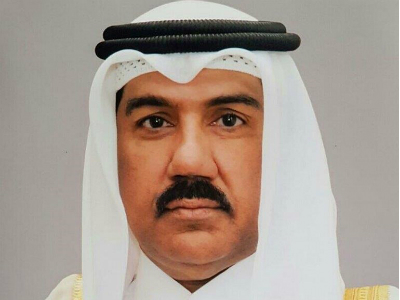Qatar Stresses Efforts for International Cooperation As Part of Its National Plan

Doha / Information Office / November 18
The State of Qatar has affirmed that its efforts in the field of international cooperation, including foreign aid, are an integral part of its national plan, in the belief of the importance of strengthening regional and international partnerships for development.
This came in a speech delivered by HE Dr. Ahmed bin Hassan Al Hammadi, Secretary-General of the Ministry of Foreign Affairs, at the ministerial round table at the high-level meeting to prepare for the Economic and Social Council Forum on Financing for Development, which began in Doha today.
HE Dr. Hammadi stressed that the implementation of sustainable development plans 2030 depends mainly on political will, resource mobilization at the national and international levels and the effective use of this potential.
He referred to the hosting by Doha in 2008 of the Follow-up International Conference on Financing for Development to review the implementation of the Monterrey Consensus and the strong declaration that had emerged, after difficult consultations, calling on the Assembly not to lose sight of this Declaration, especially after it had been affirmed by the Addis Ababa Declaration of 2015. The meeting today is a continuation of the efforts of the State of Qatar to support the international movement for the implementation of the Sustainable Development Plan 2030, he added.
HE Dr. Hammadi noted that the developing and least developed countries will be able to achieve sustainable development in the social, economic and environmental fields only through funding their national plans in the areas of the 16 development goals through activating the 17th goal. He stressed the importance of reviewing commitments and emphasizing them in the areas of activating the international partnership for Development and activation of South-South cooperation, and the triangular cooperation.
Dr. Al-Hammadi called on the meeting not to overlook the discussions on the importance of fulfilling the commitments made by the member countries, especially the developed countries, towards this plan and to monitor and evaluate the progress made in the implementation of the agreed international agreements.
He stressed the need for each State to establish the necessary mechanisms within its national scope and the national plans required to achieve sustainable development internally and to consider its role to help other States not to lag behind.
The State of Qatar had integrated sustainable development plans 2030 into the Second National Development Strategy 2017-2022 and its efforts in the area of international cooperation, including foreign aid, became an integral part of its national plan, in line with its responsibility and commitment to strengthen its regional and international partnerships, he noted.
He said Qatar has provided aid to friendly countries to about 13 sectors across various international humanitarian initiatives around the world.
He pointed out that the government subsidy represents 70 percent of Qatar's foreign aid compared to non-governmental assistance. This reflects the political will to meet Qatar's external commitments in line with its role as an active and responsible member of the international community, Dr. Al-Hammadi said.
He also pointed out that the contributions of charities, humanitarian institutions and donor countries amounted to 30 per cent of the value of external support. "These humanitarian and charitable institutions often work to deliver various assistance to their beneficiaries in accordance with the best international standards and in partnership with specialized international agencies as well as regional institutions and counterparts from around the world. "
HE Dr. Al-Hammadi noted that the State of Qatar has been able to expand its external assistance geographically and sectoral over the past years, and that such assistance has taken many forms, such as contributions and grants, tangible or technical grants or soft loans, which are often written off, as well as support for humanitarian and development projects and programs.
He also pointed out that the State of Qatar has focused its foreign aid on the education sector, which has been at the forefront of the sectors receiving aid from the total development assistance in pursuance of the Fourth Development Goal .. At the same time that the relief sector also has the largest share in the humanitarian field .. "The relief sector has seen a remarkable increase in natural and man-made disasters."
Qatari government and non-governmental assistance exceeded the ratio of official development assistance (ODA) to the developed countries of the North, to about $ 2 billion per year on average, he added.
He said the State of Qatar is not obliged to pay this proportion , but this based on its belief in the importance of South-South cooperation, triangular cooperation and the financing for development agenda, which positively reflects international peace and security and promotes human rights and development for all, in order to achieve a peaceful, integrated and non-marginalized society based on strong, accountable and efficient institutions and more resilient to counter the scourge of extremism and the threat of terrorism in accordance with Development Goals 11 and 16, which are the focus of Qatar's development policy, he added.

